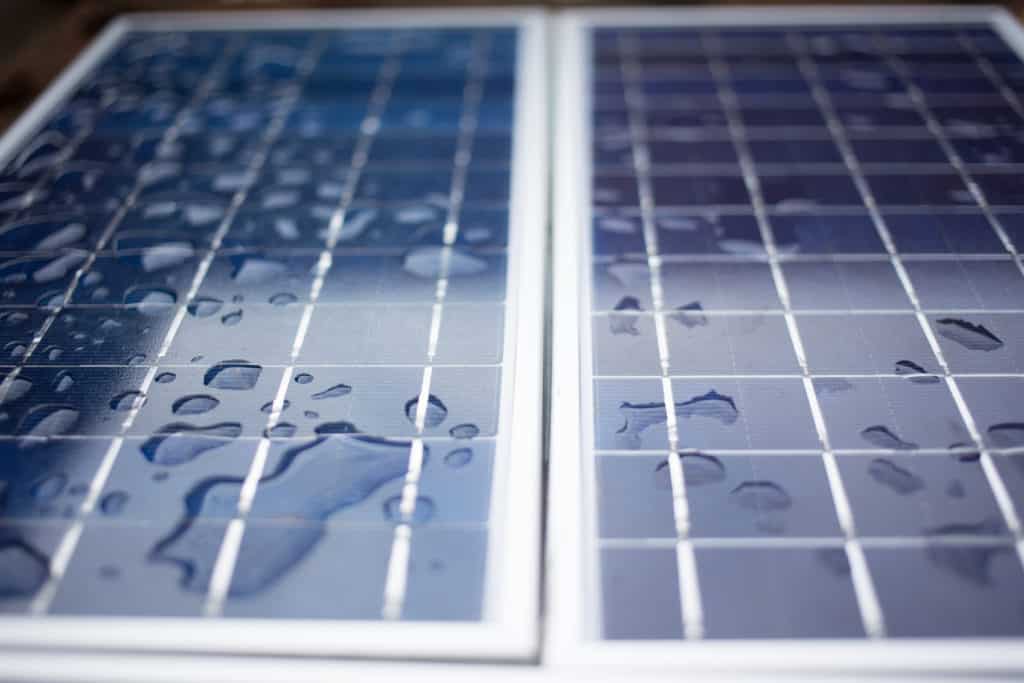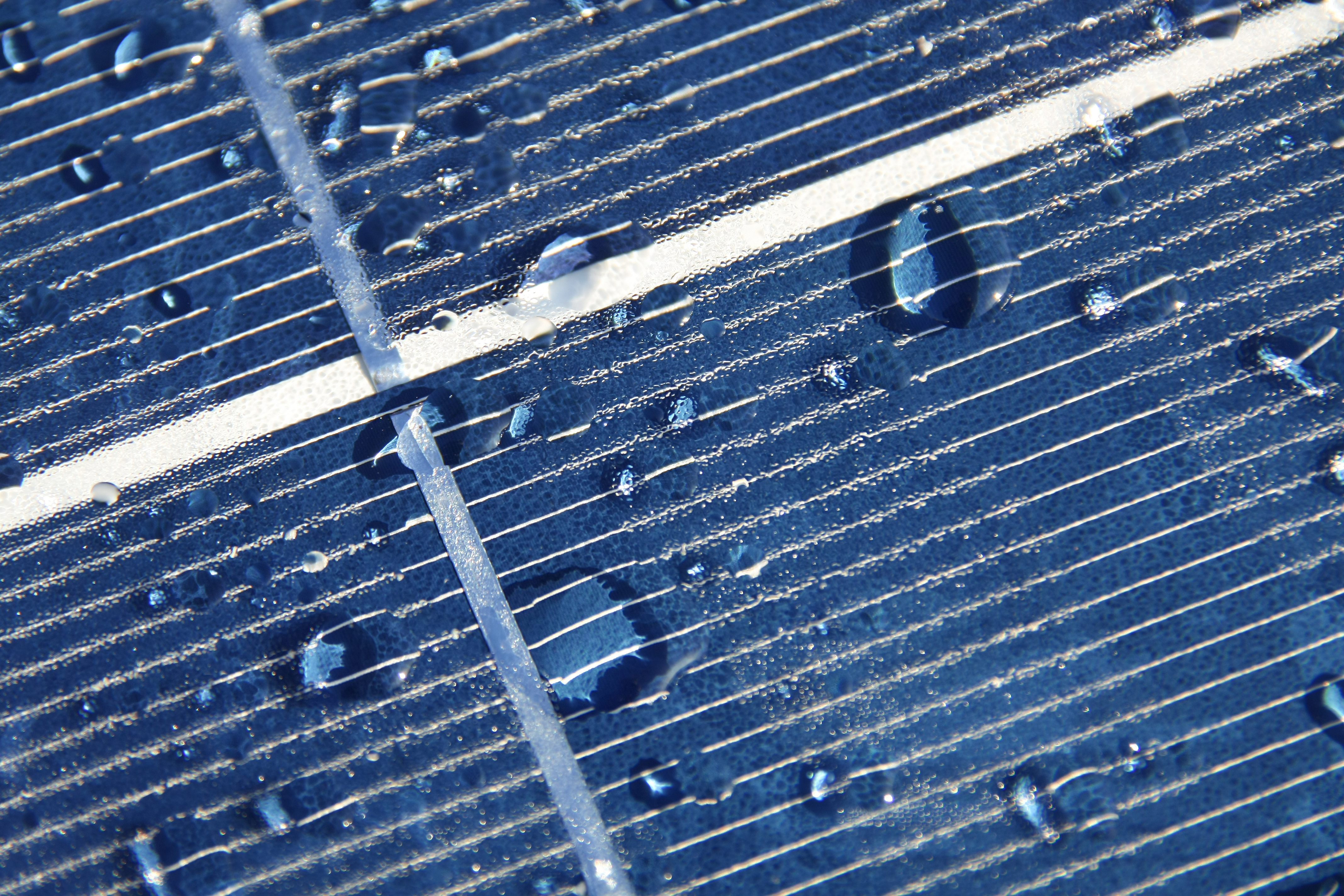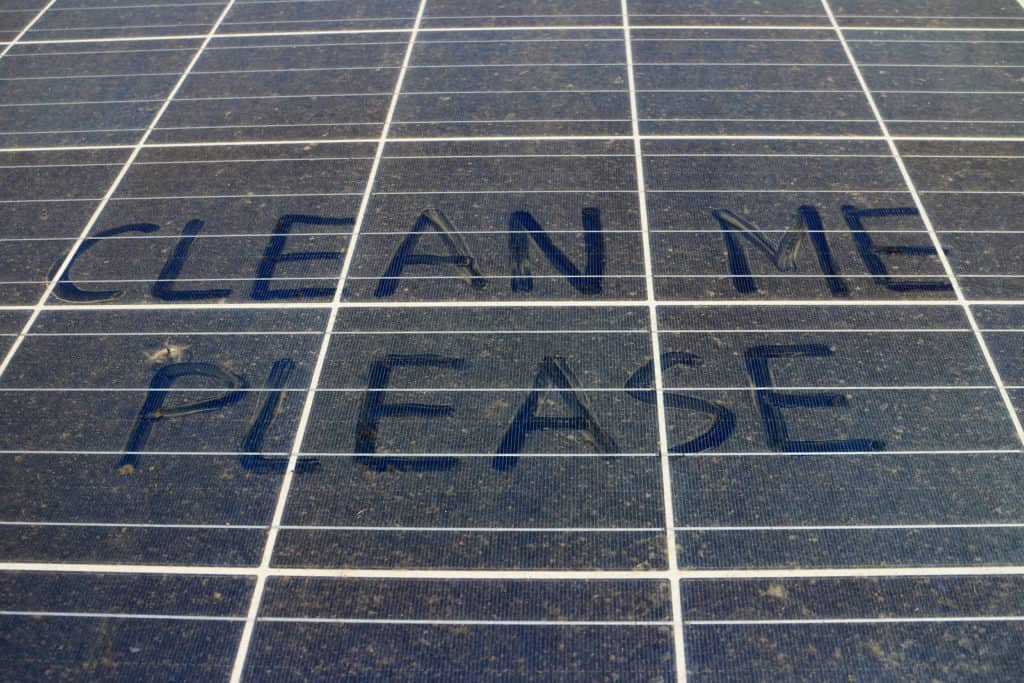
Solar panels are designed to withstand a variety of outdoor temperatures and weather conditions, but they’re not invincible. After some wear and tear, they can become damaged over time. But does hard water affect solar panels?
Hard water can cause scaling on the surface of solar panels, which can then lead to a lack of efficiency and possibly cause a short circuit that can break it completely. General water damage can also affect the integrity of solar panels, both to the sealant and the panel itself.
Solar panels are quite low maintenance and require very little upkeep. If you live in an area with hard water precipitation though, you’ll want to keep an eye on that. You should also avoid cleaning your solar panels with hard water. For more information on the effects of hard water and how to best clean your solar panels, read below.
Rain’s Effect On Solar Panels
Rain and snow aren’t usually very dangerous to solar panels. They’re designed to be set up outside after all! The occasional rainfall won’t affect them too much, although hail and heavy storms can cause greater damage.
Most hard water buildup will come from the natural precipitation that hits the solar panels. Although rainwater is initially soft water (because calcium and magnesium cannot be evaporated into clouds) rainwater can pick up dust and debris as it falls and impacts on any hard surface.
So if your solar panels were already coated in dust, rainfall can turn into hard water and cause scaling to form on the outer surface. According to solarpanelcleaningsystems.com, these scales can reduce the panels’ electrical output and cause reverse polarity or “hot spotting”. These issues combined can sometimes destroy a solar panel.
Stained and dirty solar panels are likely to be less efficient and effective over time. The loss of energy isn’t too significant, but owners will still want to prevent any loss that can be addressed.

Beyond hard water damage, wet conditions can also degrade the integrity of your solar panels over time. The panels themselves aren’t too affected by moisture, but the seals around the electrical components can weaken over time. When these seals wear out, the panels can short circuit and damage the interior elements.
So at the end of the day, just keep an eye on your solar panels. If you notice whitish scales and spots, that could be evidence of hard water damage. If you see seals beginning to warp or split, replace them as soon as possible. Do your best to address problems before they get worse.
How To Remove Hard Water Stains
Hard water stains aren’t very difficult to remove, but when it comes to cleaning solar panels, there are a few things that need to be done differently.
While some hard water stains require thorough scrubbing and scraping, you won’t want to do that here. Solar panels are tough, but you still won’t want to risk scratching them. Avoid coarse materials like steel wool and stiff brushes. Soft washcloths and sprays are the best tools to use.
If your solar panels are easy to reach, simply spray them down with a mixture of soft water and a solar panel-safe cleaner. I recommend 1 Shot Concentrated Solar Pane Cleaner, which is available in most general stores.
Once the panels have been rubbed down, rinse them with a spray of deionized water. Deionized water is water that has been purified and distilled to remove all dissolved minerals. When you use this as a final rinse, it should prevent any streaking or spotting on the surface of the panels.
Best Solar Panel Cleaning Practices

Solar panels don’t require cleaning very often. Solar panels that are tilted or installed on sloped roofs need to be cleaned even less often because water and other debris runs off of them.
Flat solar panels can get dirty far more easily and might require regular cleaning every few months. Dirt, pollen, leaves, bird droppings, ash, and hard water stains can build up over time.
If they’re left unattended, your solar panels can lose 20-40% of their efficiency. This problem is definitely worth addressing, but the panels should be cleaned in the right way in order to preserve them.
So how should you go about cleaning your solar panels?
First things first, maybe you should leave it to the professionals! Cleaning solar panels can be dangerous, especially if they’re mounted on your roof. If they’re wet or damaged, it’s even more risky to poke around. In order to make sure that the panels are thoroughly clean and nothing breaks, you may want to consider calling in a solar panel cleaning crew.
Due to the rising popularity of solar panels, these crews are widely available and more are appearing all the time. They may be a bit expensive though, so I would recommend only calling them in about once a year unless you live in a particularly dirty area.
If you do want to clean your own panels though, there are things you can do at home. First of all, you should turn off the panel inverter so they aren’t using live electricity during cleaning.
Also try to clean your panels in the early morning or evening because the temperatures will be more moderate. Spraying cold water on hot solar panels can cause them to sizzle and may damage the coating and other important elements.
Next, you should try to use a cleaning attachment that you can use from the safety of the ground. Large sweepers or spray extensions can be very helpful in cleaning hard-to-reach panels. Only climb on the roof if it’s absolutely necessary and make sure you use a secure ladder and safety equipment if you do so.
Do NOT use a garden hose to spray down solar panels. These often use groundwater that contains hard water. You may clean off the surface dirt, but the hard water buildup can cause bigger problems in the future.
Instead, wet the panels down with soft, deionized water to remove loose debris. Again, you should use a safe cleaner for solar panels and wipe them down with a soft cloth. Use only a small amount of soap to prevent runoff. Finally, rinse with soft, deionized water and use a squeegee to remove excess water.
One thought on “What Does Hard Water Do To Solar Panels”
Comments are closed.